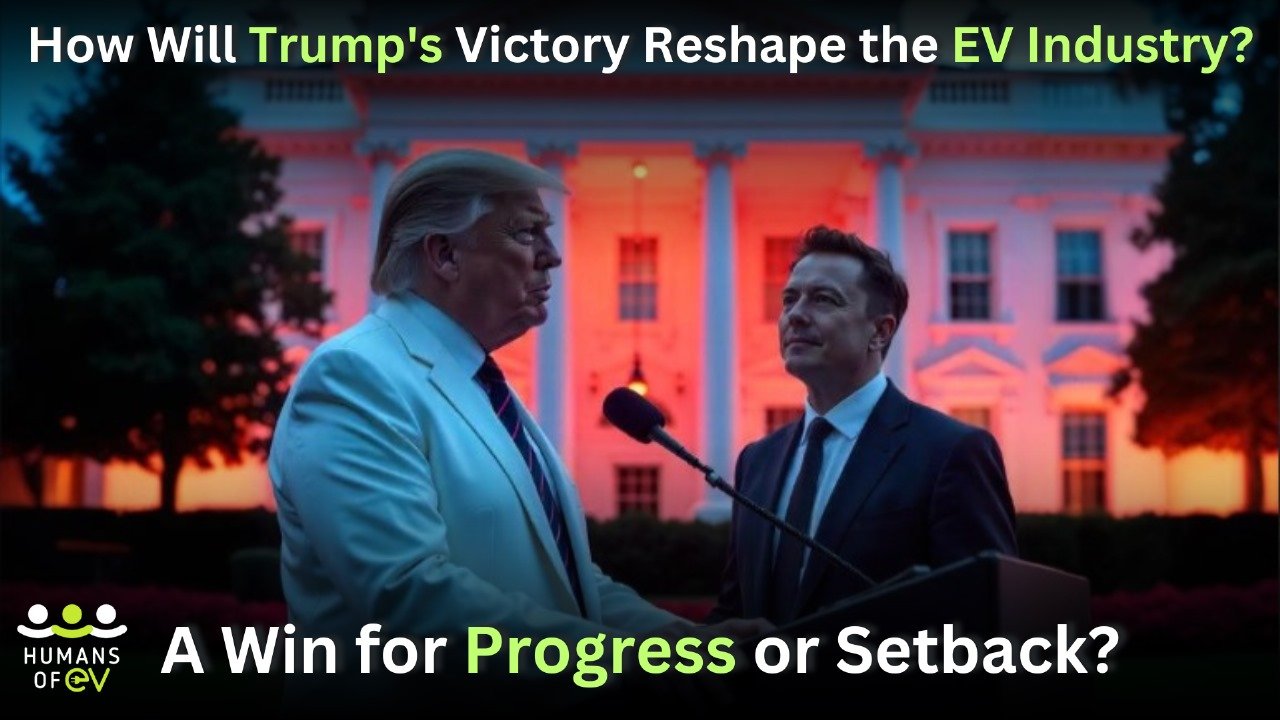
How Trump’s Potential Presidency Could Reshape the Future of the EV Industry: A Double-Edged Sword for Tesla and Beyond
As Donald Trump eyes a return to the presidency, the electric vehicle (EV) sector faces both challenges and opportunities. His stance against green energy policies—paired with close ties to Tesla’s Elon Musk—creates a complex landscape. Here’s a breakdown of the major factors shaping the EV industry’s path forward under a possible Trump administration.
Potential Setbacks: Ending EV Incentives
Trump has openly criticized green energy initiatives, which could signal an end to key EV policies if he returns to office. Notably, this would impact:
- EV Tax Credits: The tax incentives that make EVs affordable for consumers could disappear, increasing EV prices and shifting preferences back to traditional cars.
- Charging Infrastructure Programs: Programs like the National Electric Vehicle Infrastructure (NEVI) network, which funds EV charging stations, could also face cuts. This would stall the expansion of a charging network essential for EV adoption.
Without federal support, the transition to electric vehicles could slow significantly, particularly for smaller automakers that rely on these subsidies.
Tesla’s Advantage: Musk’s Influence
While Trump’s policies may impact the broader EV industry, Tesla may have a strategic edge. Due to Musk’s influence and established market position, Tesla could weather a subsidy-free landscape better than its competitors. Dan Ives from Wedbush points out that, as the largest EV manufacturer in the U.S., Tesla’s strong brand and financial stability might allow it to thrive even if federal support dwindles.
Musk’s close relationship with Trump might also result in policy adjustments that benefit Tesla directly, possibly through tax breaks or minimized regulatory constraints—offering Tesla an advantage over smaller EV manufacturers.
The China Factor: Tariffs and Global Competition
Trump’s potential stance on China could also play a major role in the EV industry’s future. If Trump tightens tariffs on Chinese EV companies, U.S.-based manufacturers like Tesla may find less competition in the market. Companies such as BYD and Nio could face difficulties entering the U.S. market, giving Tesla a clearer path to maintaining its dominance.
Conflicting Views on EVs: A Mixed Signal for the Industry
Despite supporting Musk, Trump’s broader views on the EV sector send mixed signals. He has voiced criticism of the EV transition, dismissing it as a “Green New Scam” and expressing plans to rescind EV mandates. However, his admiration for Tesla and Musk introduces a complex dynamic where Tesla may receive selective benefits, even as the overall industry faces challenges from decreased federal support.
This contradictory stance—balancing his views with Musk’s influence—leaves other EV players uncertain about how policies may impact their growth and consumer adoption rates.
The EV Industry’s Uncertain Future
The future of EVs in the U.S. remains uncertain, but a full reversal of the EV transition seems unlikely. With climate policies and emissions standards deeply entrenched, Trump would likely need congressional support to make sweeping changes. However, his influence could still slow EV adoption, affecting incentives, infrastructure, and market expansion.
For Tesla, a Trump presidency could mean less competition and potential advantages. But for the broader industry, the road to an electric future may become more challenging, potentially impacting consumers, smaller automakers, and the overall pace of EV adoption.


